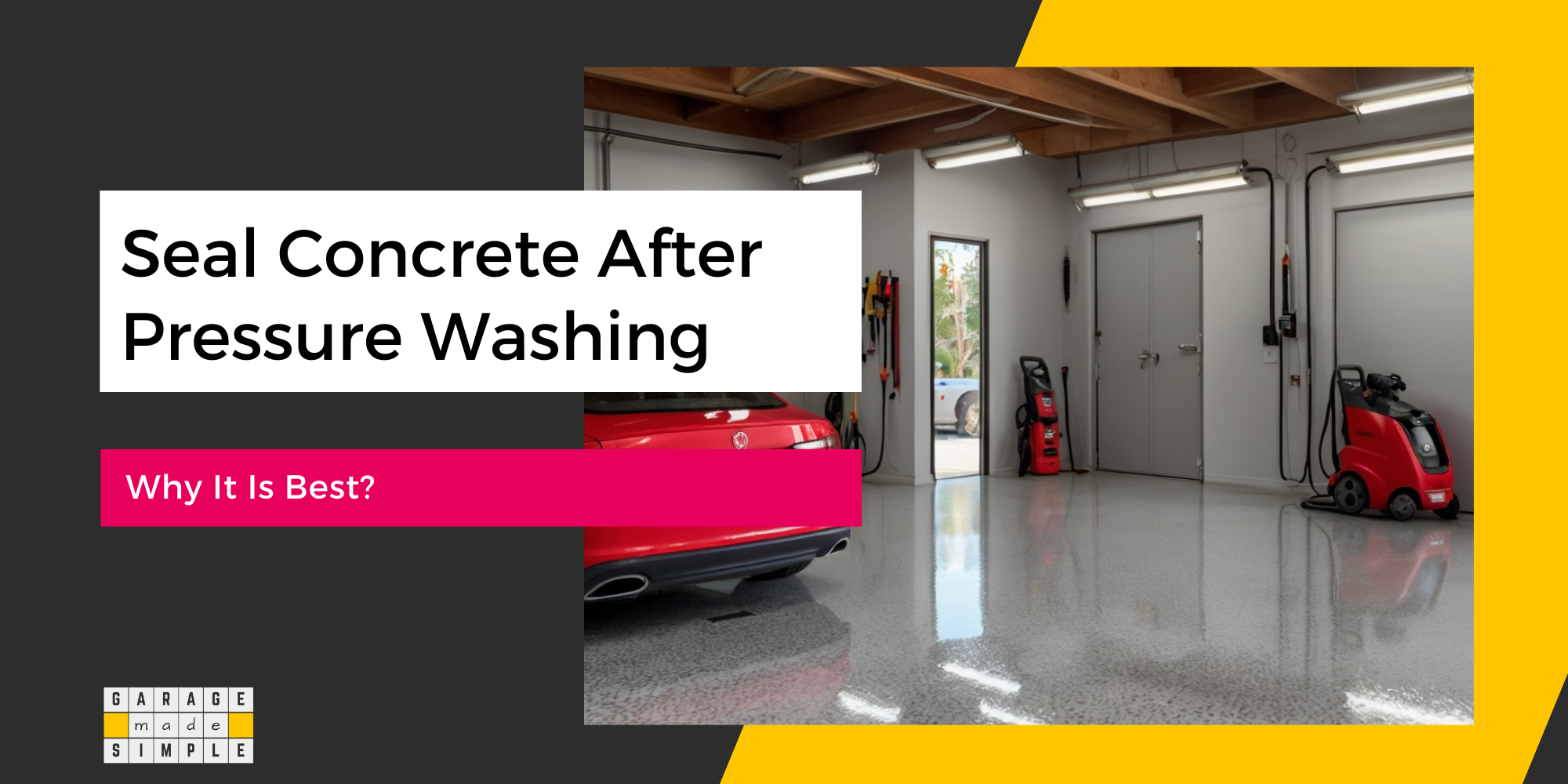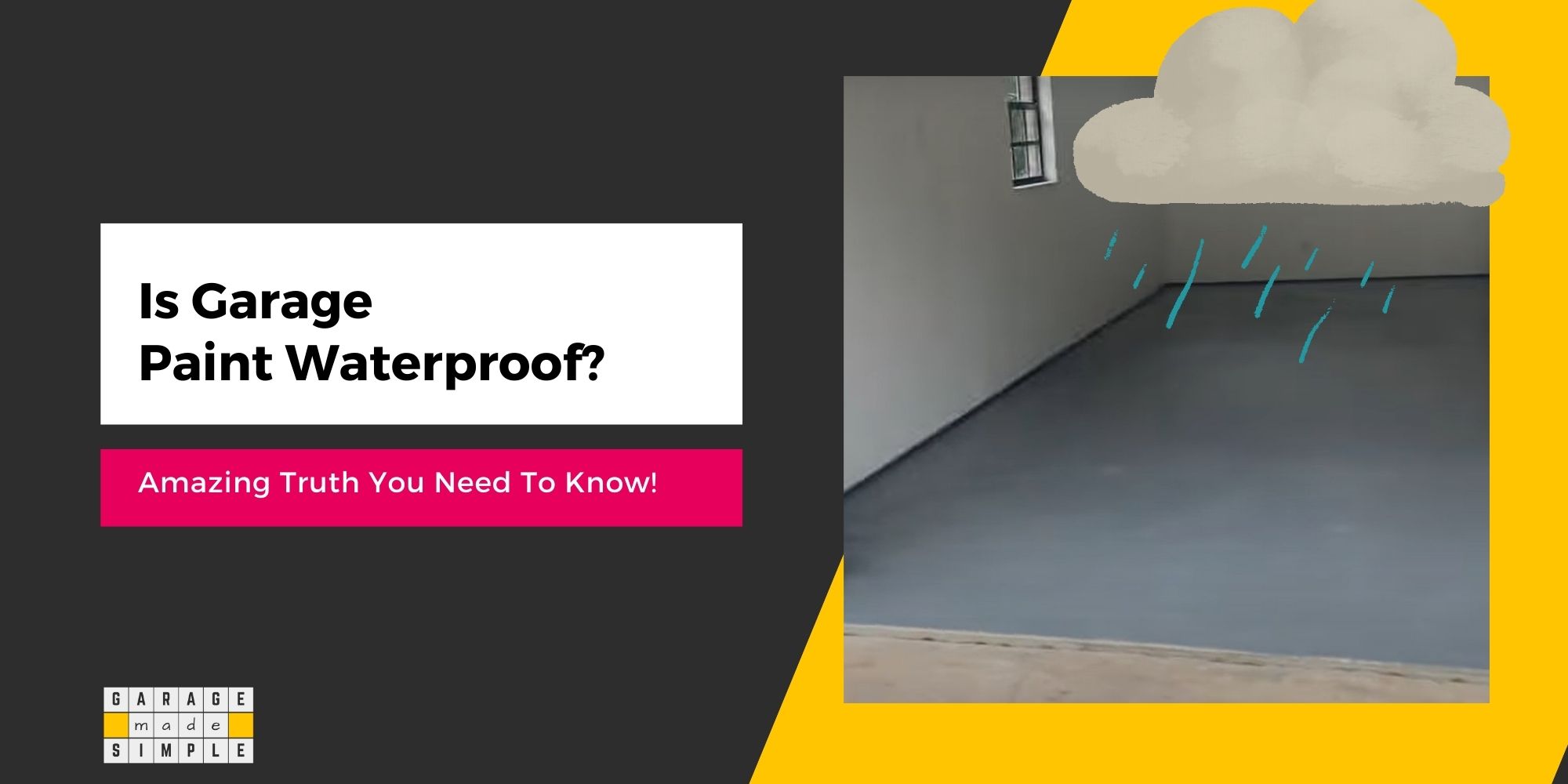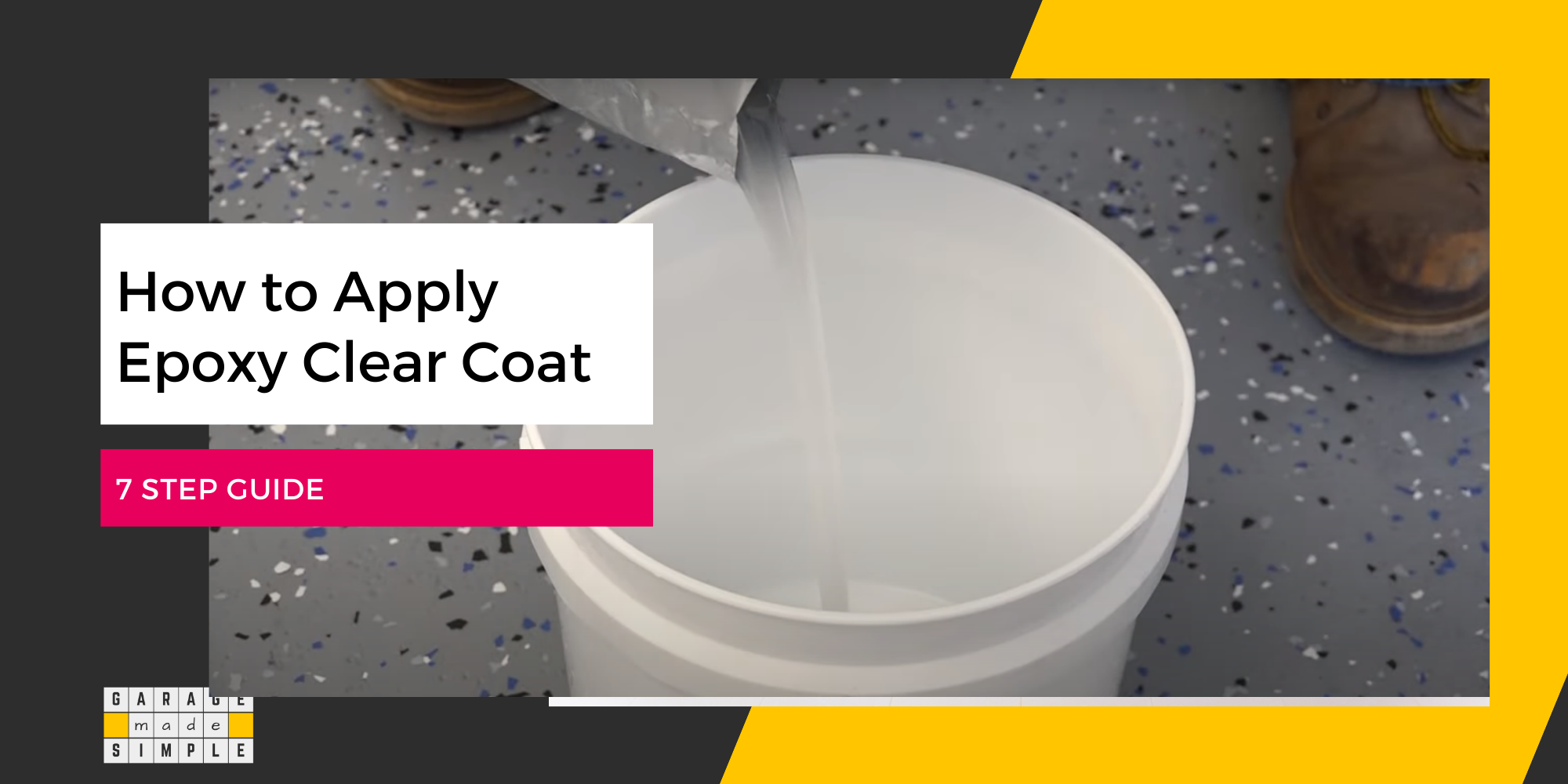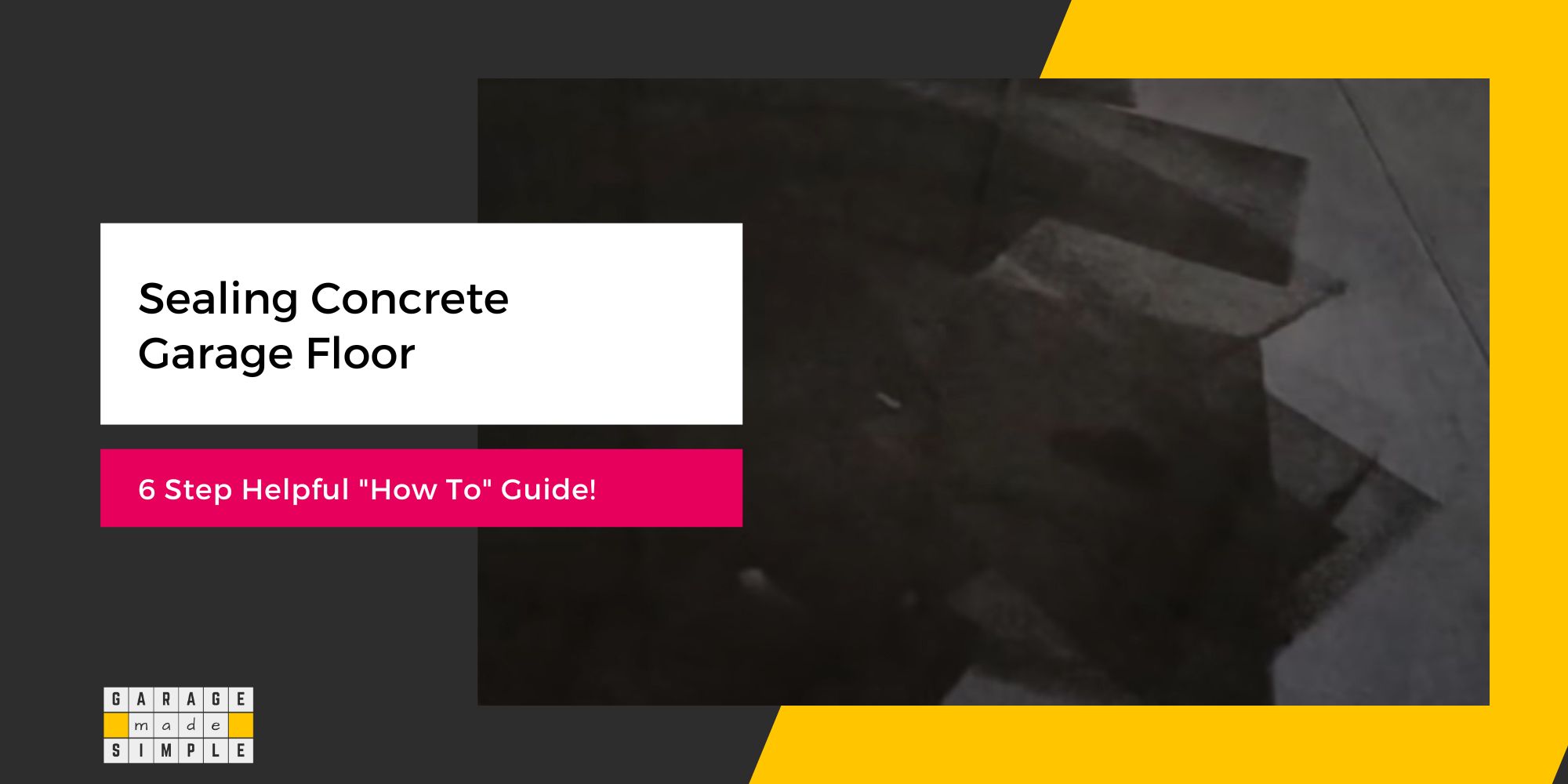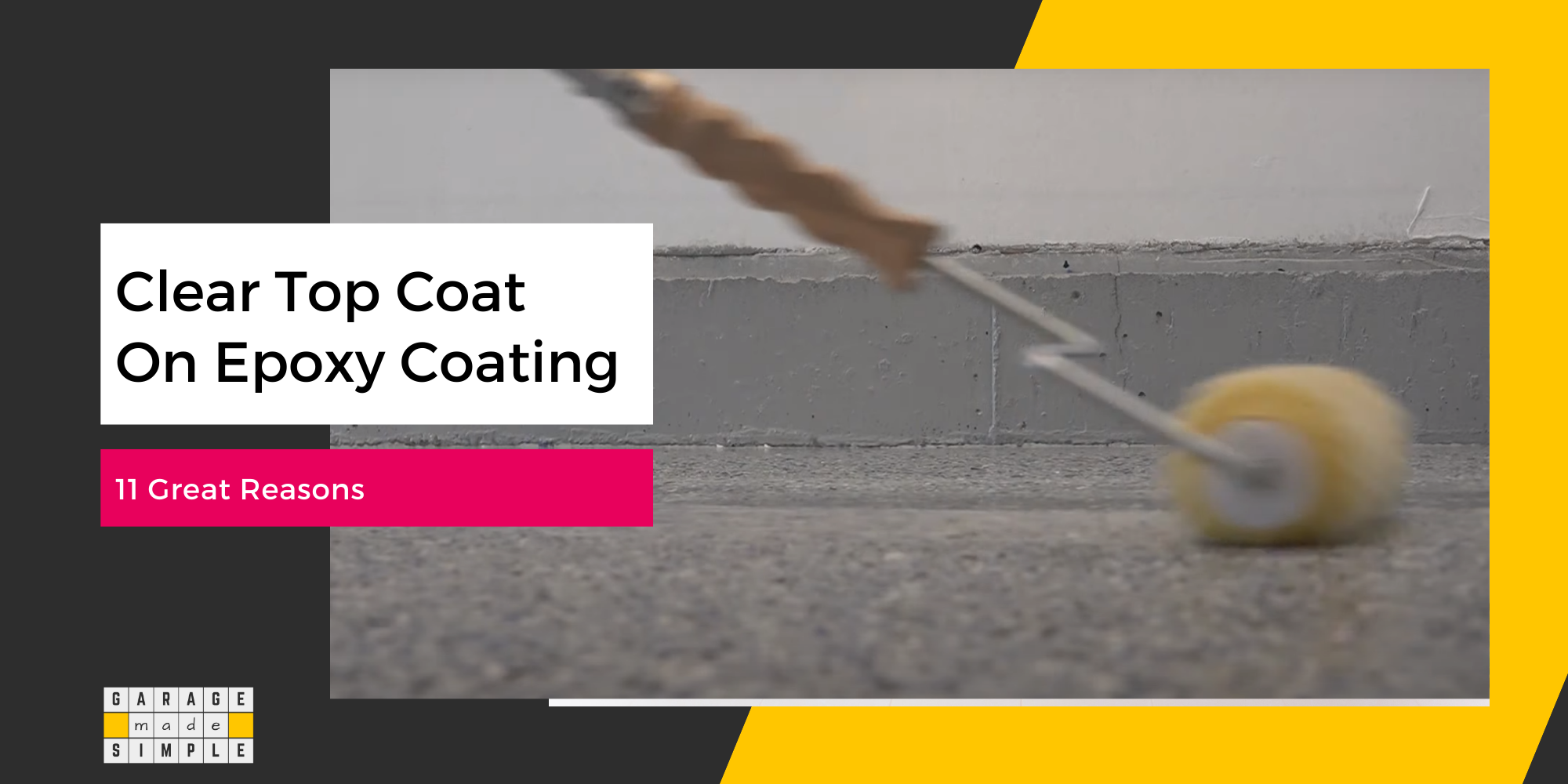9 Great Reasons Why You Should Seal Your Garage Floor!
As an Amazon Associate, I earn from qualifying purchases.
Why You Should Seal Your Garage Floor?
If the concrete floor for your new garage has been poured and the concrete has fully cured, then you may be wondering what should be your next step. Some advise you to seal it, others say sealing is not necessary. Sealing a concrete garage floor costs money and takes time & effort, so why you should seal your garage floor?
By sealing the garage floor you prevent moisture, water and chemicals from penetrating into the concrete and degrading it. A sealer extends the life of the floor and enhances its looks. A sealed garage floor will be less dusty and easier to clean & maintain.
A concrete floor sealer can be either a “Penetrating Sealer” or a “Topical Sealer”.
A penetrating sealer permeates into the pores of the concrete, solidifies and blocks them. It does not form any film on the surface.
A topical garage floor sealer, on the other hand, forms a clear film on the surface of the concrete. The film protects the concrete not only from abrasion but also from water seepage.
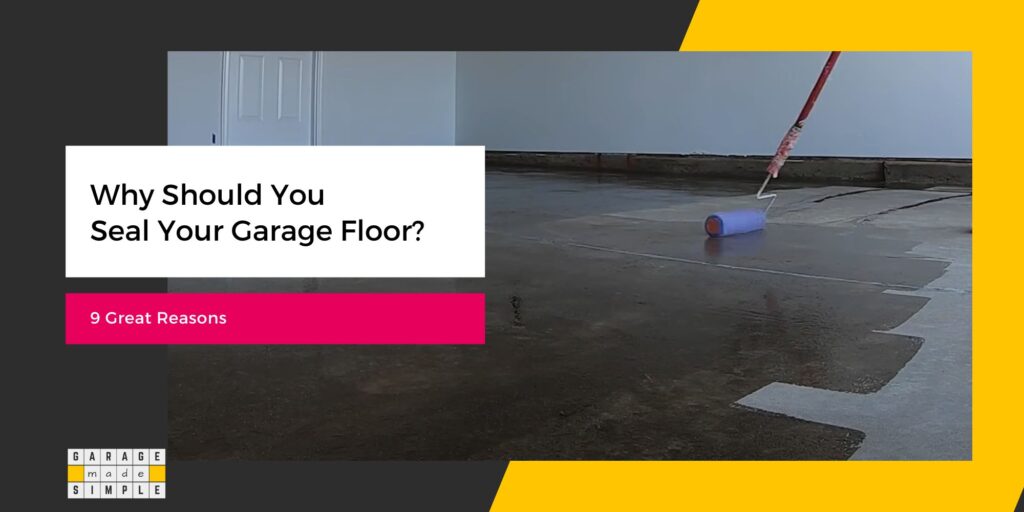
There are 9 great reasons why you should seal your concrete garage floor:
1. Prevents Moisture & Water Permeation into the Concrete
Concrete is one of the strongest building materials available. However, structurally, concrete is quite porous.
Concrete cures by a process called hydration. In the hydration process, the water and cement in the concrete mix react to form crystals. The crystals grow into a matrix enveloping the sand and other aggregates in a tight mesh.
The excess water exits from the concrete leaving a large number of pores (capillaries).
Cement is alkaline and the coarse aggregates (sand & gravel) have silica. Alkali can react with active silica to form a gel.
If water permeates into the pores (capillaries) of the concrete, the gel can absorb water, swell and apply pressure and weaken the concrete. This can result in concrete cracking and crumbling.
2. Prevents Corrosion of Concrete Reinforcement
Concrete has very high compressive strength but relatively low tensile strength. Most concrete garage floors are 4” thick. At this thickness it does not need rebars but it will have a wire mesh as reinforcement.
Without a sealer, moisture & water will permeate and corrode the reinforcement. A variety of household, gardening and workshop chemicals are stored in a typical garage. These can spill on the garage floor, mix with water and penetrate into the concrete floor.
The chemicals will hasten the corrosion process as they are likely to be somewhat acidic or alkaline.
3. Makes Cleaning of Oil Spills Easier
Sooner or later you will have oil spill and grease stains on your garage floor. Oil & grease stains are notoriously difficult to clean. The reason is that once the oil, grease or any other substance penetrates the concrete surface, it is next to impossible to get it out.
A topical sealer is very effective in preventing the spill from penetrating the concrete as it forms a clear impenetrable barrier between the spill and the concrete floor surface.
Nonetheless, you should be very vigilant and take action as soon as possible. In case of a small spill use a paper towel to absorb as much of the oil as possible. For a larger spill, sprinkle a powder such as flour or baking soda, to absorb the oil.
If your garage floor has a topical sealer you will be able to remove the oil or grease with soapy water. If really necessary, use a commercial degreaser.
4. Reduces Crack Growth Due to Freeze Thaw Cycle
A concrete slab will always crack. It is inevitable and to be expected. It is a part of the process of concrete curing. Shrinkage cracks can be as wide as ⅛”. They may look a bit ugly but they are completely harmless. Or are they?
Shrinkage cracks are harmless, only if water does not fill up the cracks and there are no temperature swings. However, if water gets into the cracks and the night time temperature drops to below freezing, the water will turn to ice.
Ice has more volume than water, so it will push against the concrete. During the day the temperature may rise. The ice in the cracks will melt to water and the concrete can move back to its original position.
This is the freeze thaw cycle. It puts a huge stress on the concrete and will cause the crack to grow. It also causes the concrete to gradually disintegrate.
A sealer prevents water from entering the cracks and thus protects the concrete garage floor from the adverse effects of the freeze thaw cycle.
5. Protects from Deicing Chemical
If you live in a zone that has freezing temperatures at night then you are likely to find ice on your garage floor in the mornings.
It is difficult to keep a garage floor dry in winters. The vehicles bring in snow which melts and forms a puddle on the floor. Overnight this freezes into ice.
So you use salt or a deicing chemical so that the ice melts quickly. It does but now the water on your garage floor is not plain water; it is salt water. Salt water is far more corrosive than ordinary water because it is an electrolyte solution.
A sealer prevents the salt water from penetrating into the concrete and corroding the steel wire mesh or rebar.
6. Protects from Abrasion
A garage floor, quite obviously, is subjected to a lot of vehicular & foot traffic. In addition you may be dragging garden or other equipment on the floor. Hand & power tools keep dropping on the garage floor.
The top layer of the concrete is the weakest because it is mostly cement with few aggregates. Abrasion will cause the top layer to break down and disintegrate.
A topical garage floor sealer will protect the soft top cement layer of the concrete from wear & tear due to abrasion.
7. Makes Garage Floor Less Dusty
If your garage floor seems to be dusty all the time, then part of the reason can be unsealed concrete.
After a concrete floor has been poured the contractor will “float” the concrete. This process helps cement and very fine aggregates to rise up to the top and the larger aggregates to sink to the bottom.
The result is a smooth finish. Unfortunately, the smooth cement layer on top is also the weakest part of the concrete. It breaks down easily under any form of stress, leaving a fine layer of dust.
A sealer will slow down the disintegration of the top layer into dust by protecting the concrete floor from different types of stresses.
8. Protects Against Hot Tire Pickup
Tires are hot when you come back home after a long drive. Once you park the car the tires gradually cool down.
The cooling of the tires results in them shrinking slightly. In the process they exert a lift or a suction on the garage floor. This can eventually cause bare concrete to disintegrate.
A sealer protects against hot tire pickup!
9. Makes the Floor Look Beautiful
Last but not the least, a couple of coats of a topical sealer will make a concrete garage floor look glossy and beautiful!
There you have it. 9 great reasons to seal your garage floor!
Pro Tip!
- Apply 2 coats of Penetrating Sealer after the concrete has fully cured.
- Apply an additional 2 coats of Topical Sealer for a natural yet glossy concrete finish. You can overlay this with mats or tiles.
- Do not apply any Topical Sealer if you plan to epoxy the garage floor. Epoxy will not adhere to the concrete.
Recommended Water Based Penetrating Sealer
Armor SX5000 Water-Based Silane-Siloxane Sealer
Water Based Penetrating Sealer
- Silane Siloxane Water Repellent
- Won’t change look or color of the Concrete
- Excellent sealer for unsealed garage floors
- Will reduce damage caused by snow and ice, road salts, environmental exposure, and staining
Recommended Solvent Based Topical Sealer
Armor AR500 Solvent Based Acrylic Wet Look Sealer
Solvent Based Topical Sealer
- Will enhance dull and faded surfaces with a high gloss wet look.
- Will reduce damage caused by surface abrasion, road salts, water absorption, and exposure to the elements.
- UV resistant, non-yellowing, breathable.
Thank you very much for reading the post. I do hope you found it informative and useful.



